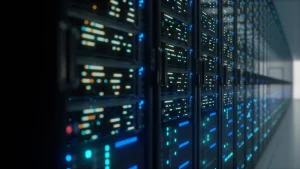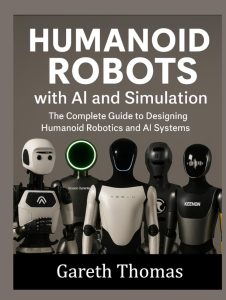OpenAI’s Sudden U-Turn: Embracing Non-Profit Roots

In a surprising shift, OpenAI, the creator of ChatGPT, has decided to remain tethered to its non-profit roots. This comes after significant pushback from tech experts, including co-founder Elon Musk. The company initially aimed to spin off its non-profit arm to maximize investor returns. However, the pressure became insurmountable.
OpenAI’s decision reflects a growing tension in the tech world between profit motives and ethical considerations. By choosing to align more closely with its ideological beginnings, OpenAI sets a precedent. Meanwhile, other developments in AI continue to capture attention, from innovative tools enhancing productivity to significant investments in AI startups.
The Dramatic Pivot Back to Non-Profit Status
OpenAI had been under mounting pressure over its decision to separate its for-profit and non-profit arms. Critics feared that this would concentrate too much power in the hands of investors. Elon Musk, a vocal critic, argued against the move, suggesting it could compromise the company’s original mission. In response, OpenAI announced a reversal, maintaining control under its non-profit board.
This decision may affect its ability to secure certain investments, but experts believe the long-term impact could be beneficial. By choosing a public benefit corporation model, OpenAI aims to balance growth with ethical responsibilities. This move mirrors structures of similar companies like Anthropic and xAI, who prioritize responsible AI development. This shift signals a larger industry trend towards ethical AI practices.
Acquisition of Windsurf: A Strategic Move
OpenAI’s purchase of Windsurf, formerly known as Codeium, for $3 billion marks its largest acquisition to date. This move demonstrates OpenAI’s commitment to advancing its programming abilities, particularly in the realm of AI coding assistance.
Anysphere, another notable company in the space, recently secured $900 million in funding, tripling its valuation. This highlights the intense competition and rapid growth in the sector. These developments emphasize the significance of software and coding tools in shaping the future of AI.
As these companies expand, they face the challenge of innovating while remaining aligned with ethical guidelines. OpenAI’s acquisition could lead to significant advancements in AI coding, potentially setting a new standard for the industry.
The Impact of Economic Changes on AI
Economic shifts, like new tariffs and trade barriers, are often catalysts for automation booms. Experts Brian Merchant and Greg Shove discuss how these elements might spur an AI revolution.
Attendees of their upcoming event will explore whether these economic factors will propel AI development or hinder it due to increased costs.
Historically, economic disruptions have accelerated technological adoption, presenting both challenges and opportunities for growth within the AI sector.
Education’s Role in Maintaining AI Talent
A significant number of CEOs have emphasized the need for mandatory AI education in the U.S. This initiative could unleash $660 billion in annual economic potential and increase individual incomes by 8%.
The current landscape sees a worrying balance between AI talent entering and leaving the U.S. China’s rise as a tech competitor contributes significantly to this dynamic. Education may offer a path to retaining and nurturing talent domestically.
Organizations like CSforALL argue for integrating computer science education early, ensuring future generations are equipped with necessary skills.
AI and Creativity: Breathing Life into History
AI tools like AI Studio are revolutionizing digital editing of old photographs. By using AI, users can add elements like sunset skies or change lighting to enhance visuals.
This capability allows individuals to bring historic moments to life, bridging past and present in unique ways through visual technology. Such innovations highlight AI’s growing influence in creative industries.
As AI becomes more intertwined with artistic processes, it offers a novel method of storytelling and preservation of history.
Productivity Tools: Enhancing Efficiency
AI tools like Dubb and CSSPicker are transforming businesses by boosting efficiency and capabilities. These tools automate processes and refine user prompts, offering significant productivity gains.
Dubb magnifies sales efforts tenfold through automation and video, showcasing AI’s marketing capacity.
As these tools evolve, they form an essential part of modern business strategies, offering simple yet effective solutions to complex challenges.
Social Media and AI’s Expanding Role
Social platforms are buzzing with AI-driven innovations, from Ethan Mollick’s interactive map creation to Sam Altman’s photo-geolocation marvels.
AI enthusiasts are actively discussing how these technologies revolutionize content creation and consumption. Such developments encourage broader acceptance and integration of AI in daily life.
This ongoing dialogue drives the wider adoption of AI, breaking traditional technology boundaries and enhancing user experiences.
OpenAI’s decision to embrace its non-profit origins highlights the importance of ethical considerations in tech. As the AI landscape evolves, balancing innovation with responsibility remains vital. OpenAI’s example could lead other companies to reevaluate their own priorities as they forge into the future.





